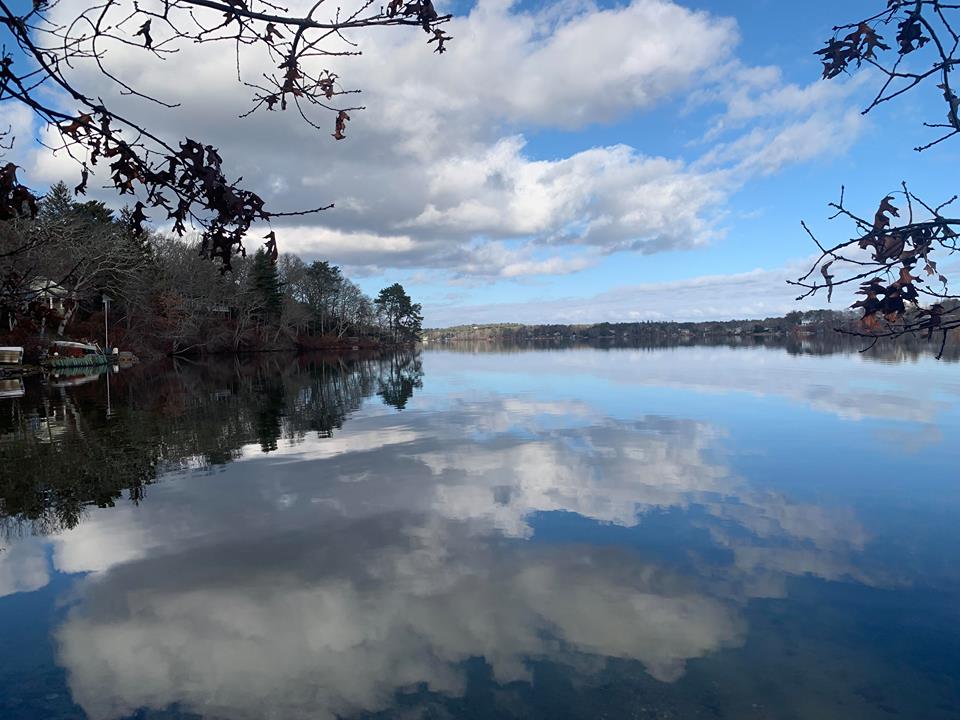Old Colony Memorial: Herring Pond Awarded Sheehan Family Grant
March 7, 2020

https://plymouth.wickedlocal.com/news/20200302/herring-pond-wampanoag-awarded-sheehan-family-grant
By Emily Clark
eclark@wickedlocal.com
Posted Mar 2, 2020 at 10:00 AM
While Europeans equated large buildings made of stone, written histories and ownership of land with civilization, many if not most Native American societies honored the earth and animals, borrowed the land from their grandchildren and practiced conservation.
PLYMOUTH – While Europeans equated large buildings made of stone, written histories and ownership of land with civilization, many if not most Native American societies honored the earth and animals, borrowed the land from their grandchildren and practiced conservation.
And the European settlers, for the most part, viewed the Native Americans as uncivilized due to the lack of written history, building construction and ownership of land, and a simple lifestyle connected to the earth.
The shoe may be on the other foot these days, however, with conservation moving into the front seat of what it means to be civilized, as global warming from so-called “civilized” human behavior takes hold.
Today, the Native American’s outlook on the earth and its resources is looking a lot more civilized to many than it did back in the early days of European settlements in North America. The intersection of Native American culture and conservation is a real one.
It’s one of the driving forces behind efforts to protect Native American culture.
Efforts to preserve and promote Wampanoag heritage and culture got a boost this month from the Sheehan Family Companies, which donated $156,000 to the Herring Pond Wampanoag Tribe. The three-year grant will help further the tribe’s mission to “preserve, promote, and protect the cultural, spiritual and economic well-being of its tribal members, educate youth, and promote awareness among the public about tribal history and rights,” according to a company press release.
Herring Pond Wampanoag Chairlady Melissa Ferretti said she’s delighted and deeply grateful for this wonderful opportunity to create educational programs for tribal members, so ancestral history and data will be preserved for coming generations.
“It’s a project-based grant to train and educate the tribe in the use of traditional ecological knowledge to protect the environment, and to eventually be able to get jobs in environmental positions,” she said. “A lot of our traditions have been lost.”
Preserving the Wampanoag language, traditional facts pertaining to animal and plant life, how to be a steward of the land – these and many other facets of the tribe will be covered through the training programs the grant will fund.
Students will be introduced to Native American herbal medicine, and other information on plants and animals on walking trails that wind through the tribe’s burial site in Cedarville, among others. Native American guides will share how their ancestors identified species of plants and animals, including the invasive varieties, as well as what their purpose was. Teaching them how to fish in the ancestral way and how the fish were also used as fertilizer would be just one topic among many.
“We’ve been stewards of this land for thousands of years,” Ferretti added. “We want to promote that and teach our children these traditional values. We want to teach our children what our ancestors taught us.”
While the European bent nature to its demands, the Native American was not so forceful with Mother Earth and embraced philosophies and religions that revered the earth. Considered savage back in the day by so many Europeans, Native American culture and philosophy mirrors many of the conservation efforts being made today.
Hello reader, our article commenting that you would normally see here is temporarily shut down. We still want to hear from you, so we invite you to go to our Facebook page or submit a letter to the editor.